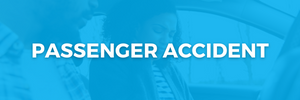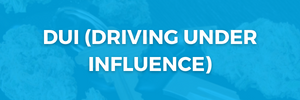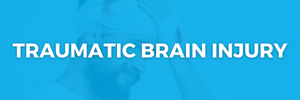Recalled vehicles are not uncommon, and they can happen to any car owner. In fact, manufacturers issue recalls to address safety-related defects or non-compliance with regulatory standards in their vehicles.
And while recalls are essential for public safety, they can confuse and frustrate car owners.
In this blog, we will guide you through the steps to take if your vehicle is recalled and explain how a vehicle recall attorney can assist you.
Understanding the Recall Process
- Identification of Safety Issues: Manufacturers identify safety-related defects through various means. For example, quality control checks and customer complaints prompt them to act through recalls.
- Notifying the Regulatory Authority: Manufacturers inform the relevant regulatory authority upon discovering a safety concern. And thus providing detailed information about the issue and the affected vehicles.
- Preparing the Recall Campaign: Manufacturers plan the recall campaign, including necessary documentation and logistics, to address the safety concern efficiently.
- Issuing Recall Notices to Consumers: Vehicle owners receive recall notices by mail containing information about the safety issue and instructions on what to do next.
- Contacting Authorized Dealerships: Manufacturers inform authorized dealerships about the recall and provide repair instructions and parts for the affected vehicles.
- Recall Remedy and Repairs: Vehicle owners take their vehicles to authorized dealerships for inspection. And, if necessary, free repairs or replacements of faulty components to resolve the safety issue.
- Monitoring Completion Rates: Manufacturers and regulatory authorities monitor completion rates. And this is to ensure repairs of the most affected vehicles, potentially following up with reminders.
- Reporting to Regulatory Authorities: Manufacturers provide regular updates on the recall’s progress to the regulatory authorities.
- Recall Closure: Once all affected vehicles are repaired or replaced, the manufacturer notifies the regulatory authority, closing the recall. However, recalls have no expiration date, and safety remains a priority.
Making a Recall Claim
If your vehicle is recalled, the manufacturer will notify you with essential details, risks, and instructions. Take quick action upon receiving it.
And to make a recall claim, contact the manufacturer or an authorized dealership. So, they’ll inspect and, if needed, repair or replace your vehicle free of charge.
- Review the Recall Notice: Carefully read the recall notice you received from the vehicle manufacturer to understand the safety concern and the steps you need to take.
- Contact the Manufacturer or Dealership: Contact the manufacturer’s customer service or an authorized dealership to initiate the recall claim process.
- Schedule an Inspection: Set an appointment with an authorized dealership to inspect your vehicle for the identified safety issue.
- Verify Recall Eligibility: Ensure your vehicle is included in the recall campaign by providing the necessary information to the manufacturer or dealership.
- Complete Required Documentation: Fill out any required paperwork or forms, providing the necessary details about your vehicle and contact information.
So, retain copies of all documents related to the recall claim, including the recall notice, repair receipts, and any communication with the manufacturer or dealership.
- Inspect and Repair: Bring your vehicle to the scheduled appointment for inspection. And, if necessary, have them repair or replace the identified safety issue at no cost.
- Follow Up: If any challenges arise during the recall process or if you have concerns about the repairs, promptly communicate with the manufacturer or seek assistance from a vehicle recall attorney.
- Monitor Future Recalls: Stay vigilant about future recalls by updating your contact information with the manufacturer. Also, regularly check for new recall announcements.
- Prioritize Safety: Remember that recalls are essential for ensuring the safety of vehicle occupants and other road users. And so promptly address any safety-related issues identified by the manufacturer.
Financial Responsibility in Recalls
During recalls, a common question is who pays for the repairs or replacements.
But the good news is that the manufacturer takes full responsibility and covers all expenses related to the recall. And this includes labor, parts, and other safety-related costs.
Manufacturer’s Responsibility
The manufacturer is legally obligated to bear the financial responsibility for all costs associated with the recall. And this includes inspection, repairs, replacements, and any related expenses.
No Cost to Vehicle Owners
As a vehicle owner, you should not incur any expenses for addressing the recall issue. Because the manufacturer covers all necessary repairs and replacements.
Warranty Coverage
If your vehicle is still under warranty at the time of the recall, the manufacturer will cover the costs even if the warranty has expired.
Reimbursement for Previous Repairs
In some cases, if you have already paid for repairs related to the recall issue before the recall was announced. But then the manufacturer may offer reimbursement for those expenses.
Rental Car Coverage
If the recall repairs require an extended period, the manufacturer may reimburse rental car expenses during the repair period.
Expenses for Second-Hand Owners
Even if you are not the vehicle’s original owner, the manufacturer is still responsible for covering the costs of recall repairs if your vehicle is affected.
Extended Recall Period
The manufacturer’s financial responsibility typically extends throughout the recall. And ensuring the repairs or replacements of all affected vehicles are done.
Transparency in Costs
The manufacturer must be transparent about their financial responsibility and should not charge vehicle owners for any part of the recall process.
Incentives for Quick Response
Some manufacturers may offer incentives, such as gift cards or discounts on future services. And this is to encourage prompt response to the recall and ensure timely repairs.
Escalating Legal Action
If the manufacturer refuses to fulfill its financial responsibility or attempts to charge you for recall-related costs. And so, consulting a vehicle recall attorney may be necessary to protect your rights as a consumer.
Responsibilities in the Recall Process
Manufacturers are legally obligated to notify consumers about recalls and provide free repairs or replacements for affected vehicles.
And as a car owner, you are responsible for promptly responding to the recall notice and taking your vehicle to an authorized dealership for inspection and repairs.
Manufacturer’s Notification Responsibility
The vehicle manufacturer is primarily responsible for identifying safety-related defects or non-compliance issues. And they are also responsible for promptly notifying the regulatory authorities about the recall.
Issuing Recall Notices
Once the recall decision is made, the manufacturer must send out recall notices to affected vehicle owners. Thus, informing them of the safety concern and providing instructions for the next steps.
Dealership Communication
The manufacturer must also inform authorized dealerships about the recall, providing the necessary repair instructions and parts to carry out the recall repairs.
Coordinating with Regulatory Authorities
The manufacturer must work closely with the appropriate regulatory authorities throughout the recall process. Such as the NHTSA, which ensures compliance with safety standards and reporting requirements.
Providing Safe Remedies
It is the manufacturer’s duty to develop and implement effective remedies, repairs, or replacements that address the identified safety issues in the affected vehicles.
Repairing Vehicles Promptly
Once owners respond to the recall notice, the manufacturer and its authorized dealerships must promptly inspect and repair the vehicles, minimizing delays.
Maintaining Records
Manufacturers are responsible for maintaining detailed records of the recall campaign. And which includes the number of vehicles inspected and repaired and the status of completed recalls.
Public Communication
The manufacturer should communicate transparently with the public, media, and affected vehicle owners regarding the progress of the recall process.
Second-Hand Vehicle Communication
Manufacturers are also responsible for notifying second-hand vehicle owners of any recalls affecting their purchased vehicles.
Adhering to Safety Standards
The manufacturer must comply with safety standards, regulations, and guidelines throughout the recall process. And this is to ensure that the remedies provided meet the required safety levels.
Types of Recalls
There are three main types of recalls:
- Safety Recalls address safety-related defects that may cause car accidents or injuries.
- Emissions Recall: These relate to vehicle emissions control system issues.
- Compliance Recalls involve non-compliance with regulatory standards, such as labeling or safety standards.
In fact, recalls typically have no expiration date. And addressing the safety concerns remains relevant until all affected vehicles are repaired or replaced.
As such, addressing recalls immediately after receiving the notice is essential.
Challenges with Recalls
Sometimes, recalls may encounter difficulties like no solution or a recall not succeeding. And if you find yourself in this situation, seeking help from a vehicle recall attorney is crucial.
In fact, an attorney specializing in vehicle recalls can assist you in understanding the process. Furthermore, they will communicate with the manufacturer on your behalf and safeguard your consumer rights.
Limited Awareness
One of the main challenges with recalls is ensuring that all affected vehicle owners are aware of the recall. Because some owners may not receive or overlook the recall notices.
Delay in Response
Some vehicle owners may delay responding to the recall notice, which can prolong the period their vehicle remains unrepaired and poses a safety risk.
Unavailable Remedy
Occasionally, they may issue a recall without an immediately available remedy, leading to frustration and uncertainty for vehicle owners awaiting repairs.
Difficulty in Obtaining Parts
Manufacturers may face challenges in producing or obtaining a sufficient number of replacement parts, which can delay the repair process.
Large-Scale Recalls
For massive recalls involving millions of vehicles, coordinating the repair efforts and handling the sheer volume of affected vehicles can be a logistical challenge.
Low Completion Rates
Some recall experience low completion rates, meaning that not all affected vehicles are repaired or replaced, leaving safety risks unresolved.
Second-Hand Vehicle Recalls
Reaching and informing second-hand vehicle owners of recalls can be challenging. Because manufacturers may not always have access to up-to-date contact information.
Recall Fatigue
Vehicle owners may experience recall fatigue if multiple recalls are issued for the exact vehicle or if recalls become frequent. And this leads to decreased responsiveness to recall notices.
Global Recalls
There are complications in coordinating recalls across different countries and regions due to varying regulations, language barriers, and cultural differences.
Recall Effectiveness
Measuring the effectiveness of a recall in fully addressing the safety concern and preventing future incidents can be difficult. Because it often relies on voluntary response and reporting.
Recalls in the Automotive Industry
Recalls in the automotive industry play a pivotal role in ensuring the safety and well-being of consumers.
And when safety-related defects are identified as non-compliance with regulatory standards in vehicle models, manufacturers take swift action by initiating recalls.
- Upholding safety standards and addressing potential defects promptly.
- Protecting consumers from accidents and injuries.
- Addressing issues of varying magnitudes in different vehicle components.
- Ensuring transparency and trust in manufacturer-consumer relations.
- Global impact and coordination for widespread safety improvements.
- Contributing to continuous improvement in vehicle safety.
Recall vs. Cancel
It’s important to understand that a recall is different from a cancellation. A recall addresses safety issues and ensures the manufacturer takes responsibility for resolving them.
On the other hand, a cancellation usually refers to the termination of a purchase agreement or contract for reasons unrelated to safety concerns.
The Role of a Vehicle Recall Attorney
A vehicle car recall attorney possesses legal expertise in product liability, consumer protection, and automotive regulations.
In fact, the personal injury attorneys in the law firm explain owners’ rights and options and assess the recall’s impact. Furthermore, they’ll investigate manufacturer negligence and communicates with manufacturers.
Also, they negotiate on behalf of owners, review recall remedies, and seek legal recourse for unresponsive manufacturers.
So, check their case results and testimonials for your reference.
Additionally, recall lawyers handle compensation claims, represent clients in class action lawsuits, and provide litigation support and items. And this is to minimize the burden for vehicle owners while prioritizing their safety.
And in conclusion, dealing with a vehicle recall can be overwhelming, but acting promptly is essential. So, if your vehicle is recalled, an authorized dealership will inspect and repair it.
So if you face challenges, seek help from a vehicle recall or a Houston car accident lawyer to protect your rights. Prioritizing safety is crucial for everyone on the road.






